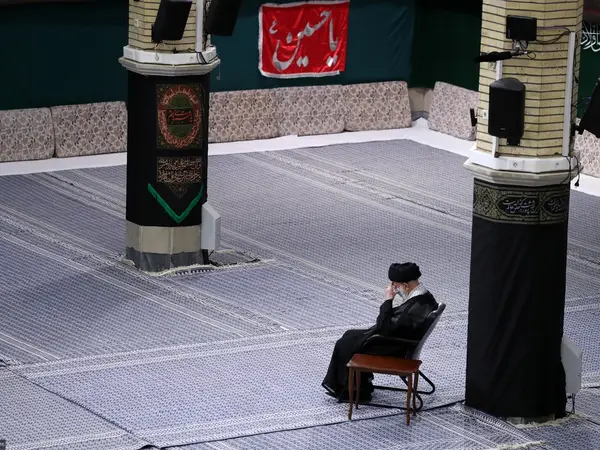An IRGC-linked news agency has slammed a former diplomat for suggesting that Iran should balance its foreign policy by having relations with both the US and Russia.
Nasser Nobari, a former Iranian diplomat, told President Ebrahim Raisi in an open letter that Iran’s politico-economic interests would be best secured if the country adopted a foreign policy of “positive equilibrium and independent multilateralism” like India, that is, to maintain good relations with both The United States and Russia.
In a commentary entitled ‘Balanced Foreign Policy or Positive Balance Policy’ Saturday, Fars news agency slammed Nobari for suggesting the adoption of ‘positive equilibrium’ as the most suitable approach in Iran's foreign policy rather than the so-called ‘balanced foreign policy’ adopted by the government which excludes any relations with the US and focuses on relations with neighboring countries and the ‘East’.
“Does the said person believe … that the US is changing its Middle Eastern policy and wants to entice Iran [to have diplomatic relations] by increasing rapport with Iran and reliance on complex diplomacy towards the Zionist regime, Arab countries, and Iran?” the commentary asked.
It went on to stress that “the relationship between the World Arrogance (Western powers) led by the United States with the Islamic Republic is a zero- sum game … and will definitely not change”.
The Fars commentary went on to argue that relations with the United States would only be possible if its political system “collapses and gives way to an anti-imperialist or at least a non-Imperialist system”.
The policy of relying on Asia or the East, particularly China and Russia, was promulgated by Supreme Leader Ali Khamenei in 2018, with the catchphrase, “Looking East”.
"We should look East, not West. Pinning our hope on the West or Europe would belittle us as we will have to beg them for favors and they will do nothing," Khamenei said in a speech in October 2018.
In his letter, Nobari who served as Iran’s ambassador to the Soviet in 1980s said the recent visit of Russian President Vladimir Putin to Iran, and the US envoy Robert Malley’s suggestion to Iran not to “opt for a position of relative dependency on Russia” indicate that both superpowers are eager to entice the Islamic Republic to choose them over the other.
“It is the first time in the past three centuries that Iran has and can make a choice and it's the superpowers that are competing with each other to bring Iran to their fold rather than dictating or imposing their decisions on Iran as they did in the Tehran Conference [during the 2nd World War],” he wrote.
The former diplomat also warned that not using this opportunity could constrain Iran’s influence in the international community and backfire as a threat.
A similar view was expressed recently by former senior conservative lawmaker, Ali Motahari, who said ‘Looking East’ should not be tantamount to distancing Iran from the West. “We need to maintain relations with both sides and take advantage of the rivalry between them. However, cutting all ties with the West would not serve the nation's interests," he said in an interview with Khabar Online.
The conservative Jomhouri Eslami newspaper on August 4 criticized the foreign ministry spokesman Nasser Kanaani for being overjoyed by the recent quarrels between Beijing and Washington over Nancy Pelosi’s visit to Taiwan and taking sides with China.
“How does a neutral policy harm us in such disputes?”, an editorial in the newspaper asked. “Doesn't Neither East nor West mean not to take sides in the disputes between two domineering powers?”
‘Neither East nor West’ was the foreign policy approach promulgated by the founder of the Islamic Republic Ayatollah Ruhollah Khomeini and was Iran's official foreign policy motto until ‘Looking East’ took its place.
